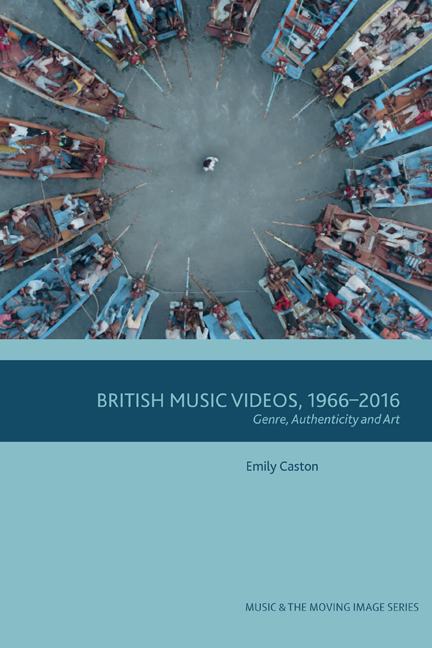1 - A Commercial Film Art
Published online by Cambridge University Press: 01 October 2020
Summary
Between 1966 and 2016, the British music and screen industries produced tens of thousands of music videos which have been viewed and celebrated across the world. Today many of these music videos can be seen on the internet amongst a seemingly infinite stream of official videos, archive videos, lyric videos and mash-ups. But no one has yet written a history of all that content. Credits are hard to come by. Little is known about the filmmakers, still less about the companies that made them. When most people think about a music video, they rarely wonder in which country it's been produced. People regard music videos as one of the most universal of media because they are films without dialogue: essentially silent films which speak a universal language that transcends national boundaries. Even within the industry, people think about music video as a global industry made by international teams of creatives, and not as a domestic product like a feature film.
The primary objective of this book is to present evidence about the British experience of music videos from 1966 to 2016 which has been obscured, especially in the pre-digital era, by an excessive focus on the USA. The book challenges the widespread assumption that music video emerged in the 1980s as a result of the launch of MTV in New York, and that British audiences were ‘Americanised’ by MTV in the 1980s. Throughout the ‘80s and ‘90s the USA was seen as the champion of music video. With the exception of interest in Chris Cunningham (e.g. Leggott 2016, Lockwood 2017, Korsgaard 2017), most scholarship focuses on US ‘auteurs’ such as Hype Williams and Spike Jonze, and on US platforms and broadcast channels. As such this book constitutes part of a larger body of recent work in film, television and music studies correcting a past tendency to focus on the so-called Americanisation of British culture (e.g. Glancy 2014) construing Britain as a victim of US cultural imperialism inflicted through MTV. Miller (2000), for example, has convincingly argued that much US television was in fact British in origin, influenced by such imports as Monty Python's Flying Circus (BBC 1969–74) and The Avengers (ABC/Thames 1961–9).
- Type
- Chapter
- Information
- British Music Videos 1966 – 2016Genre, Authenticity and Art, pp. 1 - 17Publisher: Edinburgh University PressPrint publication year: 2020



